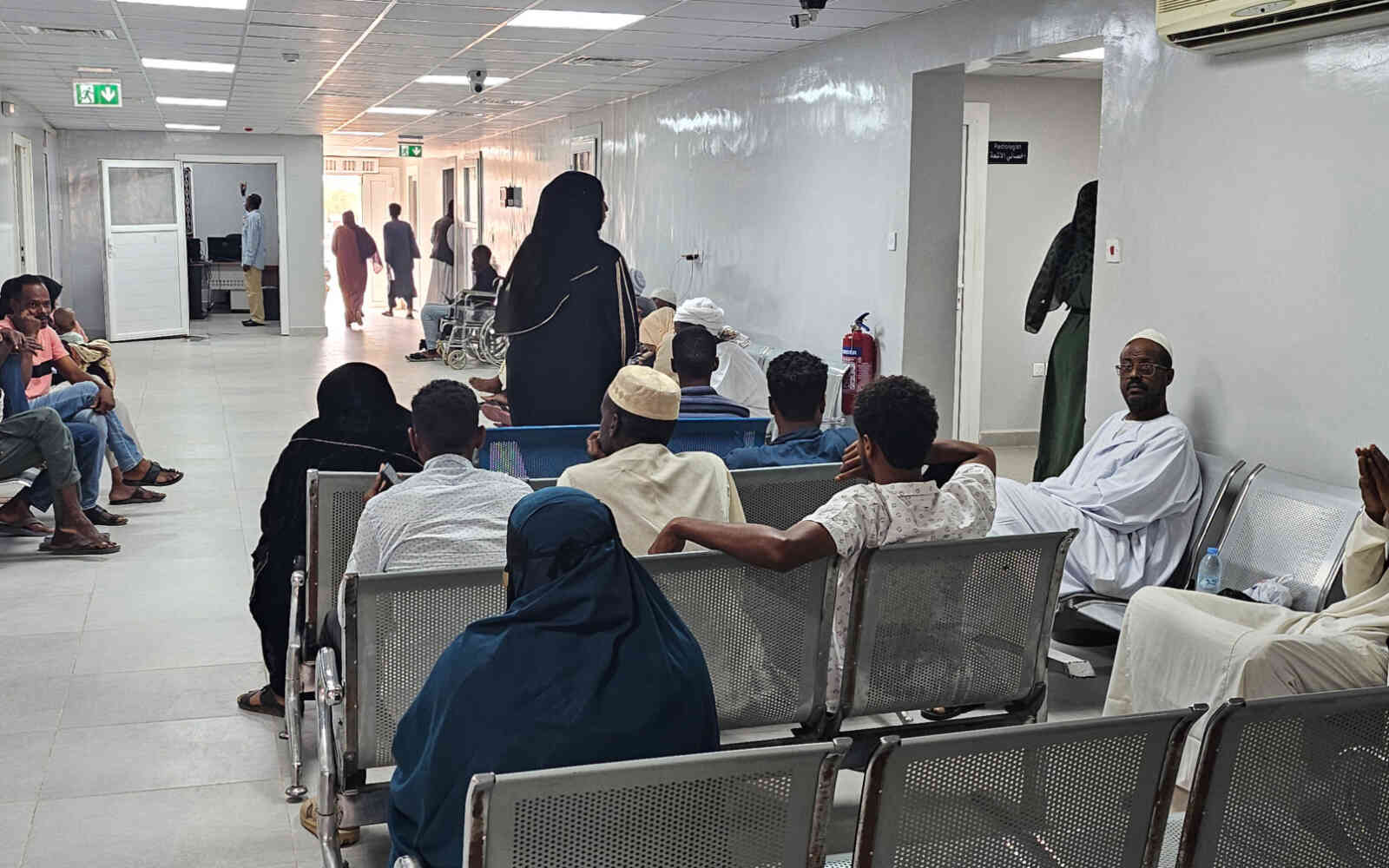The United Nations Office for Project Services (UNOPS)
UNOPS Executive Director Statement on Sudan visit
Statement attributable to Jorge Moreira da Silva, UN Under-Secretary-General and UNOPS Executive Director on Sudan, as part of a visit that has also taken him to Ethiopia and Somalia.
I am writing from Sudan, as the country marks two years of a devastating conflict, which has led to immense human suffering and widespread destruction.
UNOPS is committed to making a tangible impact on the lives of people in Sudan and supporting communities that have been torn apart by conflict. For twenty years, we have been offering practical solutions to respond to needs in Sudan, across humanitarian, recovery and sustainable development operations. Working with our partners, we have promoted sustainable development in challenging and hard-to-reach environments.
Our support has been varied: Strengthening health infrastructure, improving access to clean, safe water, supporting peacekeeping operations to protect civilians, and facilitating a more sustainable and equitable use of natural resources.
Two years of relentless conflict has rendered Sudan one of the world’s largest and most devastating humanitarian crises, with nearly half of the population in need of humanitarian assistance and protection. It is also the world's most pressing displacement crisis. Around 12.6 million people have been forced to flee their homes in Sudan since the outbreak of war in 2023.
The war has destroyed critical infrastructure, including hospitals. Much of Sudan’s health infrastructure has been devastated. In both rural and urban areas, access to water, electricity and sanitation, as well as waste management and the removal of debris are a real challenge.
The conflict has led to large numbers of civilians fleeing their homes, including people who were already internally displaced and refugees from other countries who had sought safety in Sudan. Hundreds of thousands of people have fled into neighbouring countries or returned home in adverse circumstances. Others moved elsewhere within Sudan.
This is my first mission to Sudan since I took office in UNOPS two years ago, and the first time a UNOPS Executive Director has visited Sudan since the start of our operations in 2005.
I had the opportunity to speak to communities that are internally displaced, the needs are immense. I am also meeting with government officials and other partners, to better understand needs and how UNOPS needs to adapt to support the communities.
In the immediate term, responding to this humanitarian crisis relies on rapid, safe and unhindered humanitarian access. But Sudan’s recovery, among other things, relies heavily on infrastructure rehabilitation, improved access to essential services, social protection and economic opportunities.
In the face of immense needs – we stand committed to scaling up our operations to respond to urgent and recovery needs of the communities, including those that have been displaced.
UNOPS is committed to making a tangible impact on the lives of people in Sudan and supporting communities that have been torn apart by conflict. For twenty years, we have been offering practical solutions to respond to needs in Sudan, across humanitarian, recovery and sustainable development operations. Working with our partners, we have promoted sustainable development in challenging and hard-to-reach environments.
Our support has been varied: Strengthening health infrastructure, improving access to clean, safe water, supporting peacekeeping operations to protect civilians, and facilitating a more sustainable and equitable use of natural resources.
I will see first-hand the devastating effects of two years of conflict, and decades of fragility, and witness the immense challenges that colleagues face to provide life-saving support.
Together with the Italian Agency for Development Cooperation, we are supporting efforts to improve health services for 2.8 million people – including 175,000 internally displaced persons – living in Kassala State.
Together with the government of Japan, we are helping to restore critical water supply and network infrastructure damaged by the ongoing conflict for more than 2.2 million people including host communities, internally displaced persons and refugees.
And with the European Union, UNOPS is supporting smallholder farmers in Eastern Sudan to build climate-resilience and increase agricultural productivity.
UNOPS also works together with the UN Mine Action Service (UNMAS) to help make Sudan safer. Here, we help enable the delivery of humanitarian assistance in a context with significant new explosive ordnance contamination and a rapidly changing explosive threat picture. As part of this work, we map and provide explosive ordnance risk information and education to affected communities, so that civilians can stay safe and aid workers can better deliver lifesaving support to the Sudanese population.
But we stand ready to do much more.
I echo the Secretary-General’s call on the parties to immediately cease the fighting, for an inclusive political process and to urgently scale up funding and diplomatic action, to bring about a sustainable resolution to the conflict in Sudan.
Along with the UN family, UNOPS stands with the people of Sudan.
We are committed to staying and delivering, to help communities build a better future, where people can live a dignified, peaceful and prosperous life, and where human rights are respected.











